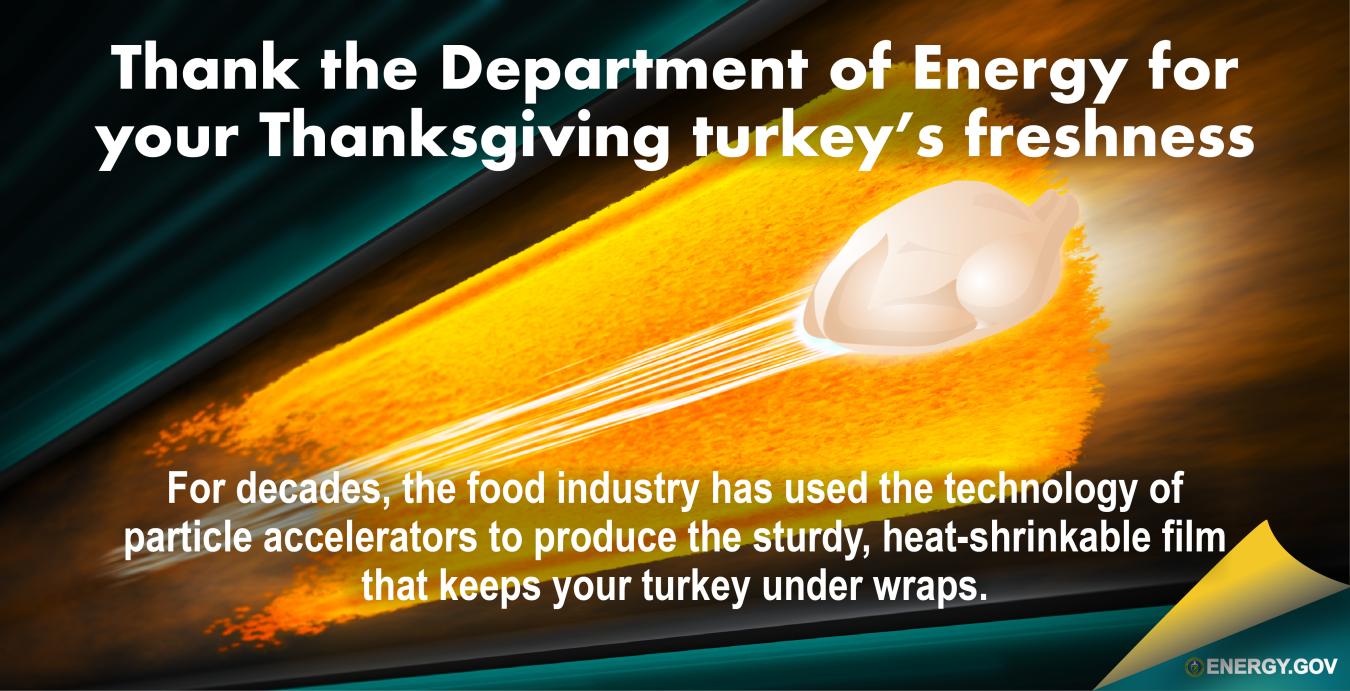Did you know that you have the U.S. Department of Energy to thank for some of the science behind keeping your turkey fresh?
November 27, 2024
Keeping your turkey fresh is perhaps something you take for granted, but did you know that you have the Energy Department to thank for some of the science that made that possible?
The science used in particle accelerators -- like the two-mile-long one at our SLAC National Accelerator Laboratory in Menlo Park, California -- also backs the process that makes the shrink wrap around Thanksgiving’s most common menu item. Particle accelerators used for science are many times larger and more powerful than typical industrial accelerators, but the underlying principle is the same.
Here’s the scoop – molecules in plastic are cross-linked by accelerated electrons, making the plastic both tougher and more heat resistant so it can be stretched into a thin film and keep that shape when it cools without breaking or melting. When you reheat the film (for instance, after food-packaging companies place a turkey into a plastic bag), the plastic can shrink back down to create a tight seal.
This is certainly helpful as we shop and prep our food for our households, but it clearly isn’t the only market for particle accelerator use. Particle accelerators can also cross-link plastics to sterilize medical equipment, make electrical wiring safe, help treat cancer, protect against nuclear attacks through their X-ray imaging powers, and explore particle physics to understand more about the basics of the universe. And the benefits and projects will continue to expand.
This summer, we announced $12 million in funding for advanced research projects in Particle Accelerator Science and Technology for scientists at eight universities, 10 National Laboratories, and five companies working on challenging problems in medical, industrial, and security applications.
So, when you’re saying your thank you’s at Thanksgiving, here’s one suggestion for you: Thank you, physics.
This blog was originally posted on November 23, 2020 and has since been updated.


